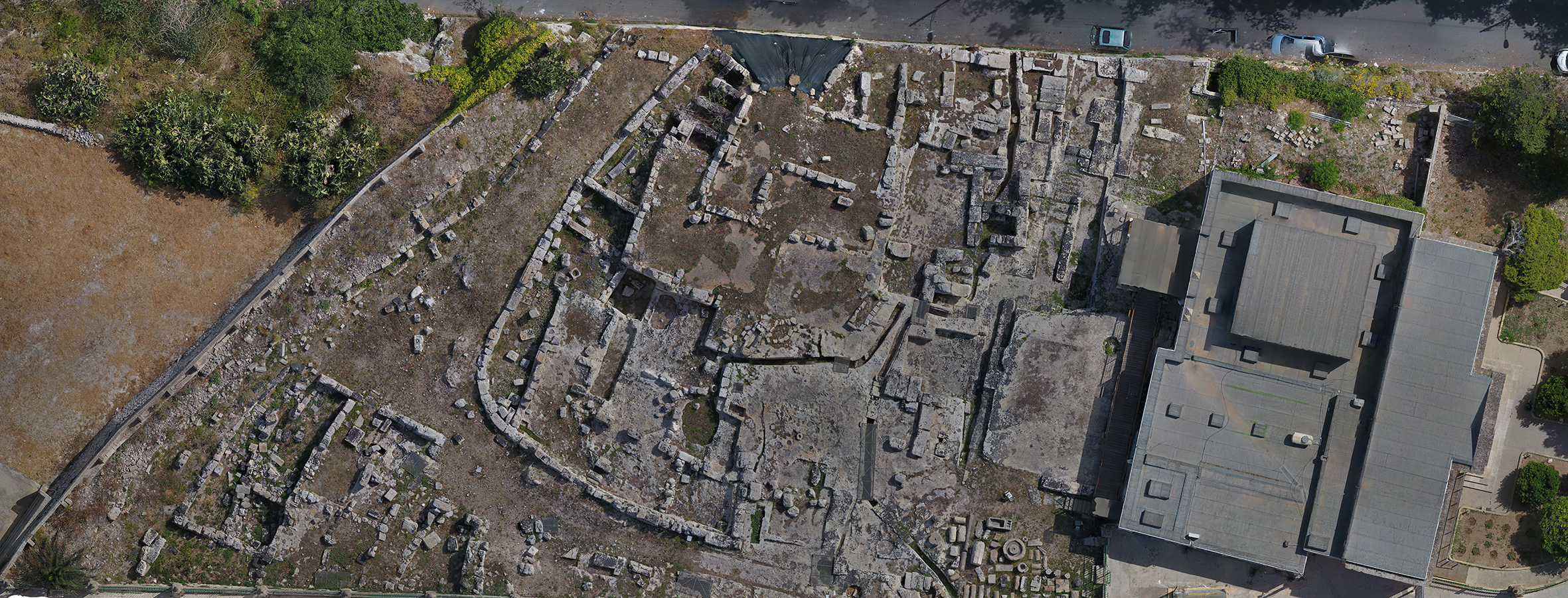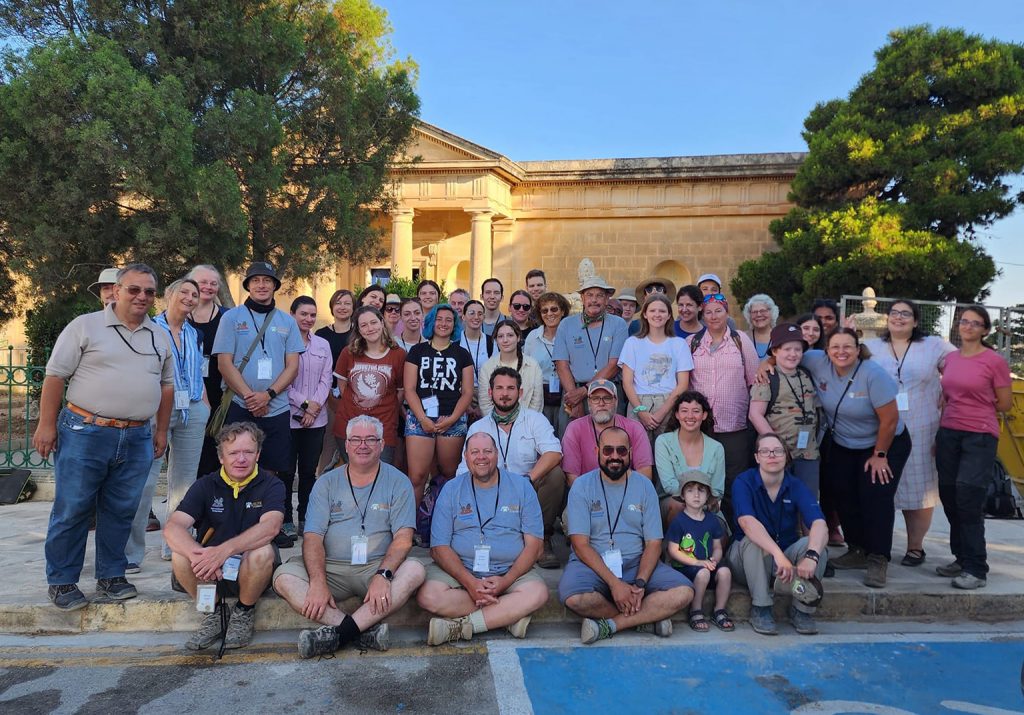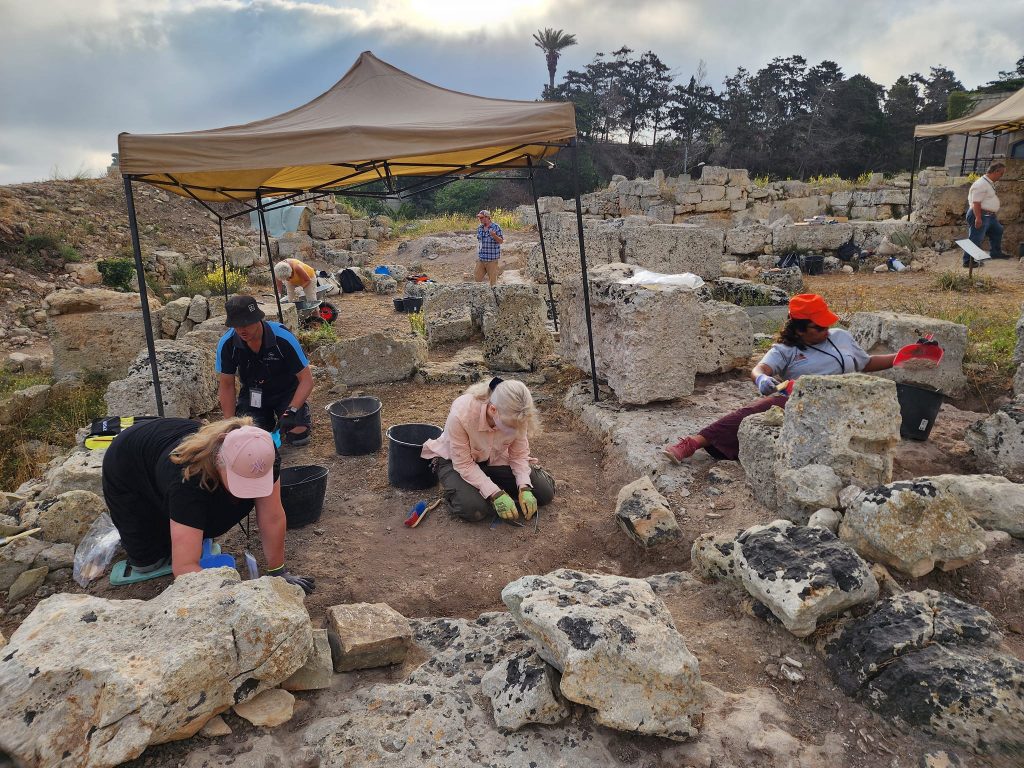Fieldwork



Location: 17 Wesgħa tal-Mużew, Ir-Rabat, Malta
Season: June 9, 2025 to June 28, 2024
Session Dates: 3 weeks: from June 9th 2025 to June 28th 2025
Application Deadline: March 30, 2025
Deadline Type: Rolling
Program Type:
Field School, Volunteer
RPA Certified:
No
Affiliation:
Heritage Malta, University of South Florida, University of North Alabama, Intercontinental Archaeology
Project Director:
David Cardona (Heritage Malta), Ben Lowe (University of North Alabama and Intercontinental Archaeology), Davide Tanasi (University of South Florida), Rob Brown (Australian National University; Intercontinental Archaeology), Andrew Wilkinson (Intercontinental Archaeology)
Project Description:
The Domus Romana in Rabat, Malta is the remains of a rich, aristocratic roman town house (domvs) which was accidentally discovered in 1881. Although very little remains from the house itself, the intricate mosaics which survived for centuries as well as the artefacts found within the remains are testimony enough of the original richness and story of this fantastic abode. The archaeological landscape surrounding the house has been excavated to some extent close to the structure of the domus. These excavations dating back to the late 19th and early 20th centuries uncovered the remains of a road passing by the structure as well as a number of other buildings and features lining the road. This archaeology needs a great deal of further research and re-excavation, as does the open ground beyond the Domus Romana that continues below the city of Mdina. Once known as the Roman city of Melite, Mdina is contiguous to the site.
The Project, for our intentions, aims to establish the extent of the roman archaeological landscape in which the Domus sits. Furthermore we hope to determine a possible role of the Domus in that landscape including is place in the Roman settlement and agricultural function of the region as well as its significance to the Roman settlement at Melite. We also hope to answer a number of broader questions we have regarding links of the Domus and the surrounding structures to local trade, including the possibility of the Roman use or control of earlier Phoenician trade structures. Our project, though only in the field for short research and excavation seasons, will continue to work on the data and materials from our research year round. The proposal that is being drawn up will include thorough processes and procedures for the protection and conservation of the site after the field season has concluded as well as a rigorous publication expectation.
The field school entails 3 weeks of archaeological fieldwork, classification, analysis and emergency restoration of ancient artifacts and application of 3D scanning and digital photogrammetry to archaeological contexts.
Costs include 4 star accommodation, 2 meals each day, transport to/from site, and free access to Heritage Malta sites and lecture on various aspects of archaeological excavations methods archaeological science and digital archaeology. Costs of 2024 season are yet to be determined.
A trailer of the 2023 excavation season can be found here: https://www.facebook.com/watch/?v=845495580060622&extid=CL-UNK-UNK-UNK-AN_GK0T-GK1C&mibextid=2Rb1fB&ref=sharing
Period(s) of Occupation: Roman Imperial period - Early Medieval
Project Size: 25-49 participants
Minimum Length of Stay for Volunteers: 2 week
Minimum Age: 18
Experience Required: none
Room and Board Arrangements:
Hotel Santana, St Pauls Bay Malta.
Places are limited. For enrollment and accomodation contact: int.arch.malta@gmail.com
Academic Credit:
None
The AIA is North America's largest and oldest nonprofit organization dedicated to archaeology. The Institute advances awareness, education, fieldwork, preservation, publication, and research of archaeological sites and cultural heritage throughout the world. Your contribution makes a difference.
Notifications